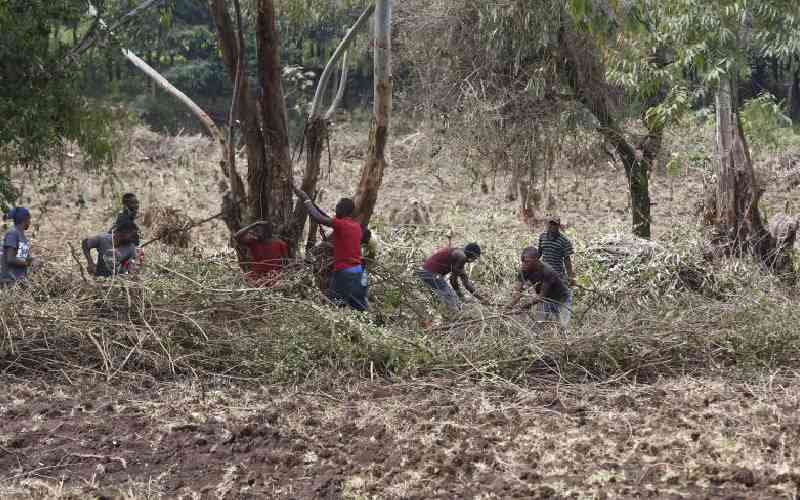×
The Standard e-Paper
Join Thousands Daily

Kenya faces more duress on its biodiversity as more households face the poverty trap.
From a cursory look in the counties, there's nonstop over-exploitation of natural resources yet population growth and shrinking farm lands are on a risky crescendo.